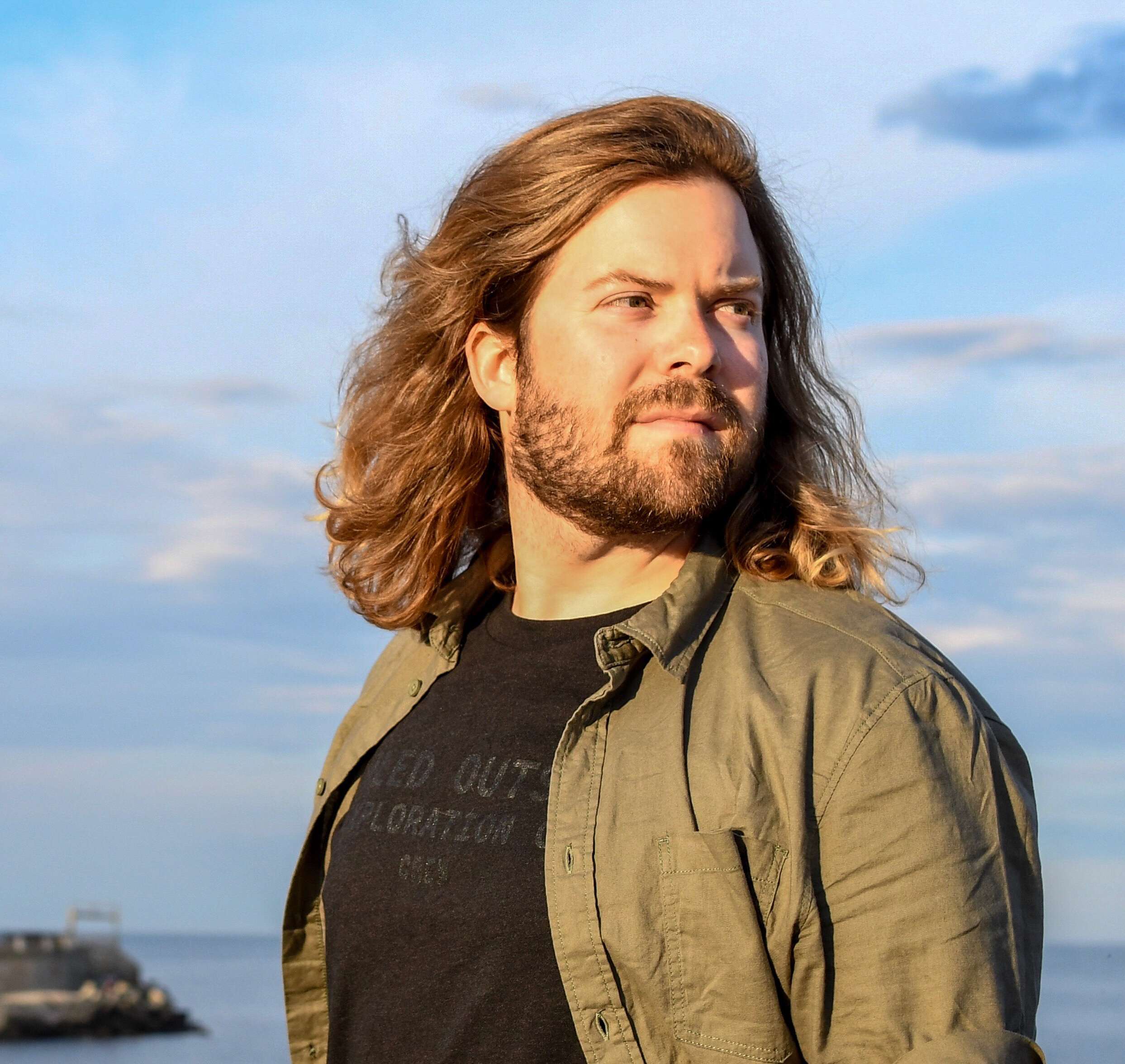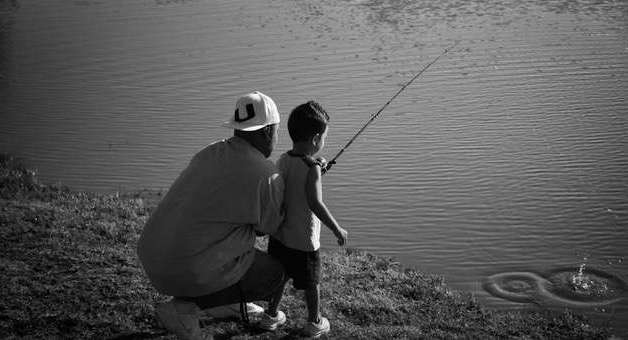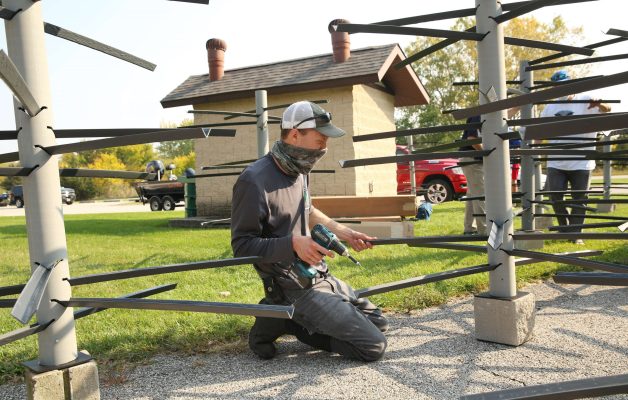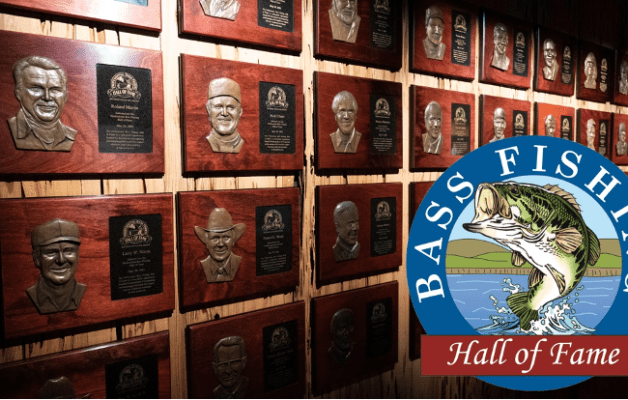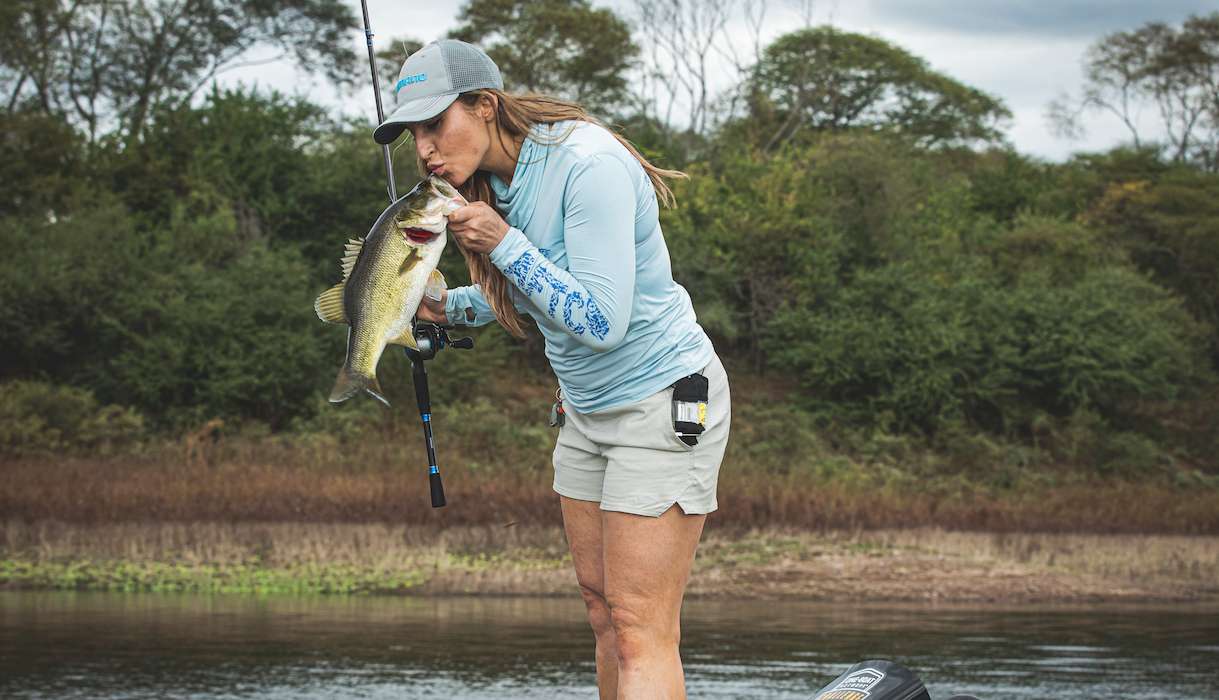
Ashley Nichole Lewis tilted her head to the sky and could hardly believe her eyes. What she saw flying over the waters of Lake El Salto in November of 2019 defied explanation — a fully rigged bass boat dangling from a helicopter hundreds of feet in the air.
The stunt and subsequent drop of a Vexus bass boat into Mexico’s El Salto, the most famed bass fishery on the planet, was part of the Humminbird/Minn Kota One-Boat Challenge, a YouTube series pitting anglers from around the country against each other on bass fishing’s most mythical fishery. Lewis, a 31-year-old salmon and steelhead guide born and raised on the Olympic Peninsula, was soon deeply entrenched in the world of bassin’.
While the most recent chapter in Lewis’s fishing journey took place on a fully-rigged, competition-ready bass boat in Sinaloa, it began with a spinning reel and a mother’s love in Elma, Wash. “I just had mom,” Lewis recalls. “I didn’t have the influence of a dad, or grandpa or uncle, or anything like that. But mom did a very good job of encouraging my siblings and I to play outside, so I would go play in the campground park or go chase fish around.”
From the bow of that Vexus, it’s difficult to imagine a tiny version of Lewis, clad in the fluorescent colors of a puffy, 1990s windbreaker steadily hoisting farm-raised rainbow trout, pellet bellies as she calls them, into her hands. But for years, growing up, that’s what she did. “I was so excited to bring home food for some reason,” she laughs. “The idea of that, at 8 years old, it felt like a big deal to me.”
Lewis enjoyed fishing. She enjoyed spending time outdoors, enjoyed the thrill of the bite, and as she grew older the budding adventurer enjoyed expanding the range of her adventures into the nearby Quinalt and Queets rivers. As a member of the Quinalt Indian Nation, Lewis enjoyed access to some of the most unspoiled waterways in America. And the lush rainforests surrounding their banks became her wild, untamed playground. “As I grew up, I moved on from those pellet bellies to salmon and steelhead on these private, secluded rivers that are frankly better fishing than anywhere else in the Pacific Northwest.”
Lewis made a habit of hiking into the remote reaches of the peninsula, savoring the chilly mornings and melding into the verdant landscape that looks more Lord of the Rings than familiar, Tennessee River reservoir. The Olympic Peninsula is famous for stunning scenery. It’s one of the few places in the world where four separate climates converge, simultaneously hosting coastlines, glaciers, temperate woodlands and rainforests. Over this mosaic of natural forces, the snow-capped, volcanic peaks of the Cascade Mountains carry an eternal watch.
This land, its waters and its fish became the stuff of Lewis’ dreams. By the time she reached college, around 2010, she’d become known as an expert in the outdoors. By request, she began a homegrown guiding business, ferrying friends and visitors into areas inhabited for some 500 generations by Quinalt people.
“I never went into it with the intention of being a guide,” she explains. “I was spending more time fishing, and people wanted me to take them with me. At one point, I donated a trip to a local charity and word of mouth spread very quickly.”

In between trips, Lewis split time at trade schools, a local community college and an eight-year stint at Starbucks Coffee Co. She’d tried college, hair school and mastering the art of the barista. But by 2019, Lewis had graduated from the University of Washington with a degree in American Indian Studies — in part, as an effort to further her connection to the land. “Essentially, it’s a degree in fisheries and Pacific Northwest history,” she adds. “Most of it involved graduate-level research on specific Pacific Northwest fisheries.”
That connection is not hyperbole. Lewis says what began as a childhood hobby to pass time has created a deep connection in her soul. “One of the important values we carry as a tribal community is connection to a physical space, which is sometimes hard for non-tribal friends to understand. For me, fishing draws a connection with physical space that I think makes life a lot better than if we don’t have that. People make that connection in different ways, but fishing is the way I do it. That connection is very grounding. It’s very physically healthy, and it helps me understand the world around me along with how I fit into it.”
Today, Lewis finds herself at the vanguard of a new generation of women anglers who are redefining a sport long dominated by men. Her Instagram account, @BadAshOutdoors, is one of the leading outlets in an online movement that seeks to supplant the image of the bikini-clad fishing model with that of the real deal, outdoorswoman. It’s as much about the days spent without a bite as it is the final moment of victory.
Her trip to El Salto was no fluke, and she competed in the One Boat Challenge for a charity that she sees as a critical link between fishing’s past and its future — Brown Folks Fishing. “Brown Folks Fishing creates an alternative space for people who otherwise might not go outside or interact with fishing. It’s a new space for them that isn’t about fitting in with what we know of as the general fishing community. It’s made for women, children and people of different colors and sexual orientations, a space where indigenous voices and black voices and people of other colors are at the front of the fishing conversation.”
Rather than a derby or tournament, Lewis says Brown Folks Fishing events might focus instead on lunch near a river or simply hanging out with friends while fishing on the side. “Maybe you fish, maybe you don’t,” she explains. “It’s an alternative to other fishing events which are sometimes about figuring out how to conquer the space and take it home.”
Last fall, when the thump of helicopter blades signaled the beginning of her bass fishing career in earnest, Ashley Nichole Lewis was an experienced angler with a novice’s touch for largemouth. But now, she says she’s hooked. “Bass are a lot like steelhead. The fish are very acrobatic and very spirited, but I don’t have to be knee-deep in the rainforest covered in rain gear to experience them. As I get older, that very much appeals to me. Do I want to transition into bass fishing? I would say that I’m partially converted already.”


